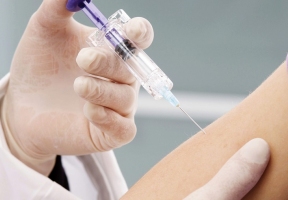

People who rely on social media for information were more likely to be misinformed about vaccines than those who rely on traditional media, according to a study of vaccine knowledge and media use by researchers at the Annenberg Public Policy Center of the University of Pennsylvania. The study, based on nationally representative surveys of nearly 2,500 U.S. adults, found that up to 20 percent of respondents were at least somewhat misinformed about vaccines. Such a high level of misinformation is “worrying” because misinformation undermines vaccination rates, and high vaccination rates are required to maintain community immunity, the researchers said.
‘Worrying’ levels of vaccine misinformation
The researchers found that:
• Eighteen percent of respondents mistakenly say that it is very or somewhat accurate to state that vaccines cause autism;
• Fifteen percent mistakenly agree that it is very or somewhat accurate to state that vaccines are full of toxins;
• Twenty percent wrongly report that it is very or somewhat accurate to state that it makes no difference whether parents choose to delay or spread out vaccines instead of relying on the official vaccine schedule from the Centers for Disease Control and Prevention (CDC);
• and nineteen percent incorrectly say it is very or somewhat accurate to state that it is better to develop immunity by getting the disease than by vaccination.











